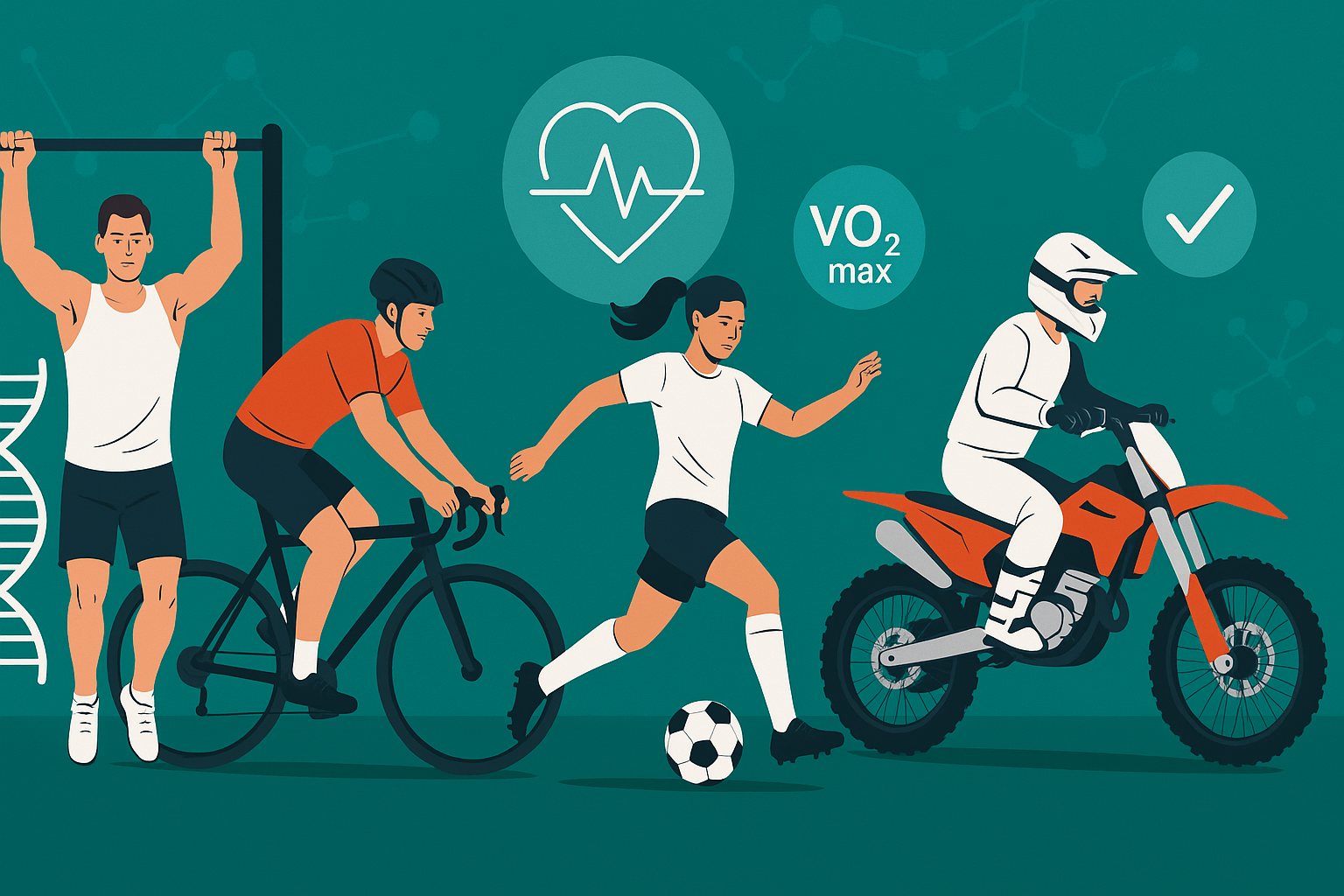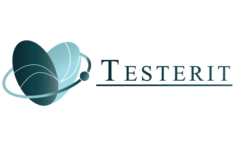🧬 Genetic test for training – discover your ideal workout plan

Have you ever wondered why high-intensity interval training works for your friend, but a slower-paced endurance run feels better for you? The answer might lie in your DNA. A genetic test for training can help you understand your body’s unique responses to exercise and guide you to a smarter, more personalized fitness journey.
Why take a genetic test for training?
Recent research, including a fascinating article on Yle’s Well-being site, highlights how significantly our genes impact how we respond to different types of exercise. While elite athletes are already using this knowledge to improve their performance, there’s no reason everyday exercisers shouldn’t benefit too.
With a genetic test for training, you can gain insight into:
- The types of exercise best suited for your body
- Your recovery speed after workouts
- Your risk of repetitive strain injuries
- How efficiently your body uses oxygen and nutrients
Understanding your genetic blueprint allows you to train smarter – not necessarily harder – and reach your goals with fewer setbacks.
How genes affect different types of training
Let’s take a look at four athletes: a CrossFit enthusiast, a cyclist, a football player, and a motocross rider. Each sport places different demands on the body, and genetics play a key role in meeting those demands.
- CrossFit: Requires strength, speed, and endurance. Genetics can influence fast-twitch muscle fibers, which are crucial for explosive power and high-intensity efforts.
- Cycling: Focuses on cardiovascular endurance and oxygen uptake. Genetic potential for a high VO2max gives a clear advantage here.
- Football: Demands agility, reaction speed, and recovery. Genes may affect muscle composition and recovery rate, both critical during fast-paced games.
- Motocross: Combines balance, endurance, and reaction time. Genetics can impact nervous system efficiency and cardiovascular stamina under high heart rate stress.
What a genetic test for training can reveal
Advanced tools like the the Testerit Fitness genetic test, analyze how your body responds to physical stress, recovers, and processes energy. Based on your results, you can customize your workouts to match your strengths.
Here’s how different sports can benefit:
- How your body responds to endurance or strength training
- How quickly you recover from exertion
- Are you more susceptible to repetitive strain injuries
- How your body processes oxygen and nutrients
With this information, you can modify the training program so that it supports your biological strengths. The result is a more efficient workout, better recovery, and fewer injuries.
Example sports and how genetic tests can help with training
Crossfit
- Find out your tendency to fast and slow muscle cells, i.e. how much of your muscles are made up of fast (producing explosive power and speed) or slow (supporting endurance) muscle cells
- Provides information on recovery speed and overload risk
- Helps optimize the relationship between strength and endurance training
- Identify potential risks for high-intensity training
Cycling
- Reveals the genetic basis of VO2max potential and aerobic endurance, i.e. how well your body is able to use oxygen for energy production and at what level your maximum oxygen uptake may naturally be
- Provides recommendations for optimal training heart rates
- Indicates the efficiency of muscle energy production
- Helps avoid overloading on long journeys
Football
- To find out the genetic basis of speed and agility traits
- Helps you plan your training load and recovery rhythm, based on how quickly your body genetically recovers from physical exertion
- Identifies susceptibility to repetitive strain injuries
- Optimizes the development of anaerobic and aerobic capacity
Motocross
- Assesses the nervous system’s ability to react and factors affecting concentration
- Highlights the body’s ability to tolerate high heart rate levels for a long time
- Reveals genetic predispositions for balance and coordination
- Helps you plan the right strength endurance and body control training for the sport
- How your body responds to endurance or strength training
- How quickly you recover from exertion
- Are you more susceptible to repetitive strain injuries
- How your body processes oxygen and nutrients
With this information, you can modify the training program so that it supports your biological strengths. The result is a more efficient workout, better recovery, and fewer injuries.
Not just for elite athletes
While genetic testing was once reserved for professionals, today it’s a powerful tool for anyone looking to get the most from their workouts. Whether your goal is to increase speed, build strength, or improve recovery, a genetic test for training helps you train more efficiently and avoid common setbacks.
Of course, genes aren’t everything. Your results still depend on consistent exercise, sleep, nutrition, and recovery. Think of genetics as a roadmap – you still choose the destination and how you get there.
Training based on science, not guesswork
The field of exercise genetics is evolving rapidly. More coaches and athletes are now using test data to customize training plans and reduce injury risk. These insights can even guide nutrition and recovery strategies.
Knowledge-based training is becoming the new normal. Instead of trial and error, you’re basing your plan on hard data. That’s not just smart – it’s game-changing.
Summary: why genetic testing is the future of training
By understanding your body’s natural strengths and vulnerabilities, you can:
- Build a training program tailored to your genetics
- Prevent injury and avoid burnout
- Maximize progress and performance
A genetic test for training won’t do the work for you, but it gives you the best possible map for your fitness journey. With the right insights, you can stop guessing – and start training smarter.
DNA tests
Gene tests give us insight into our own lineage and relatives. This knowledge will help us make better choices for our health and better performance.
